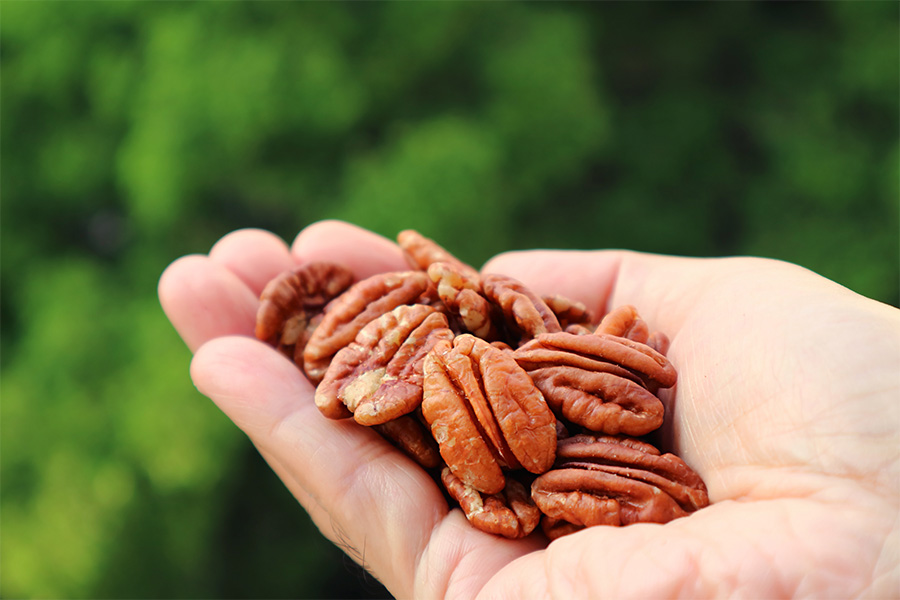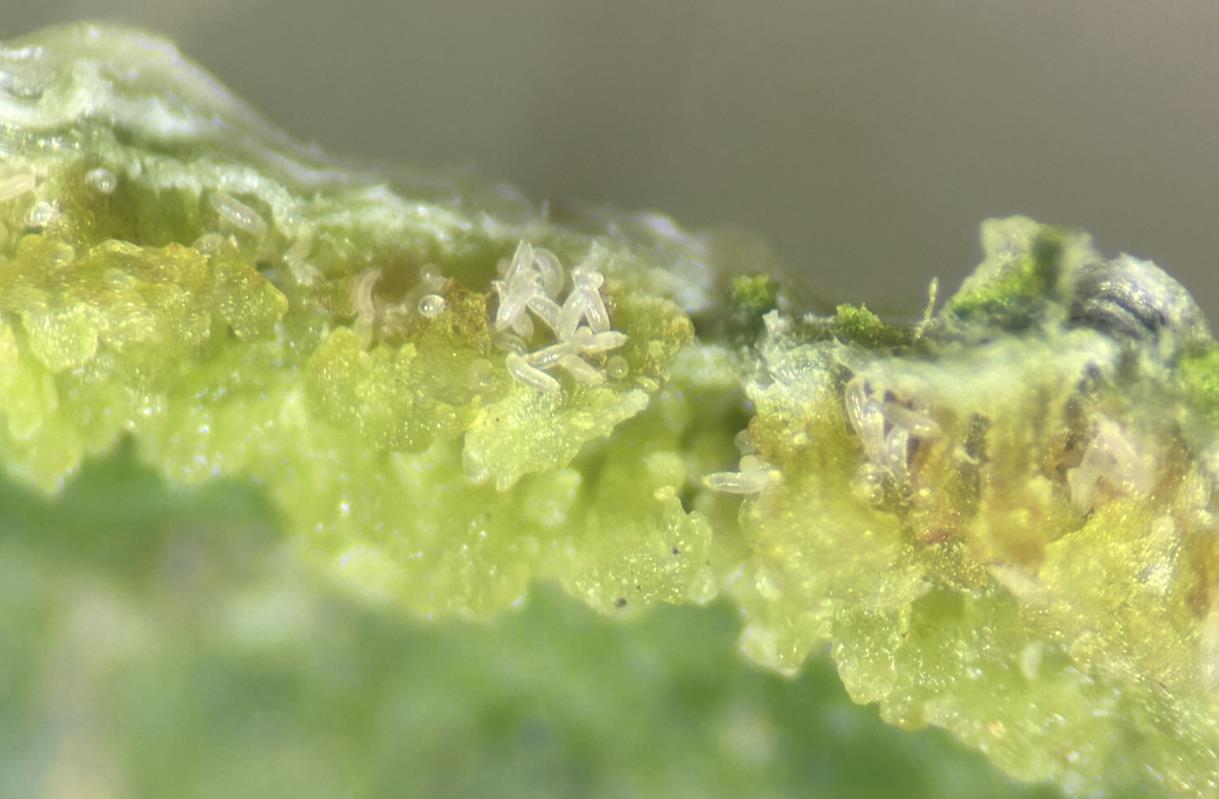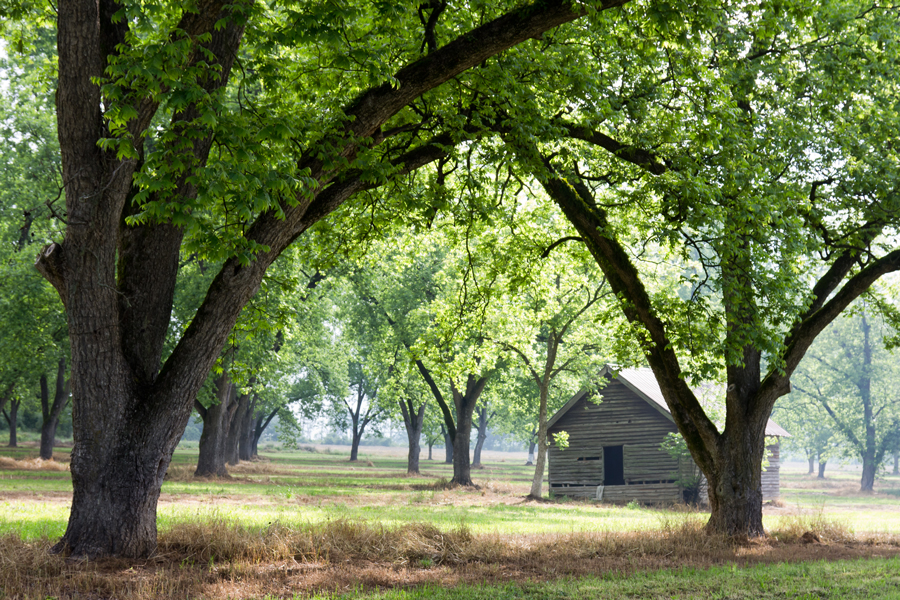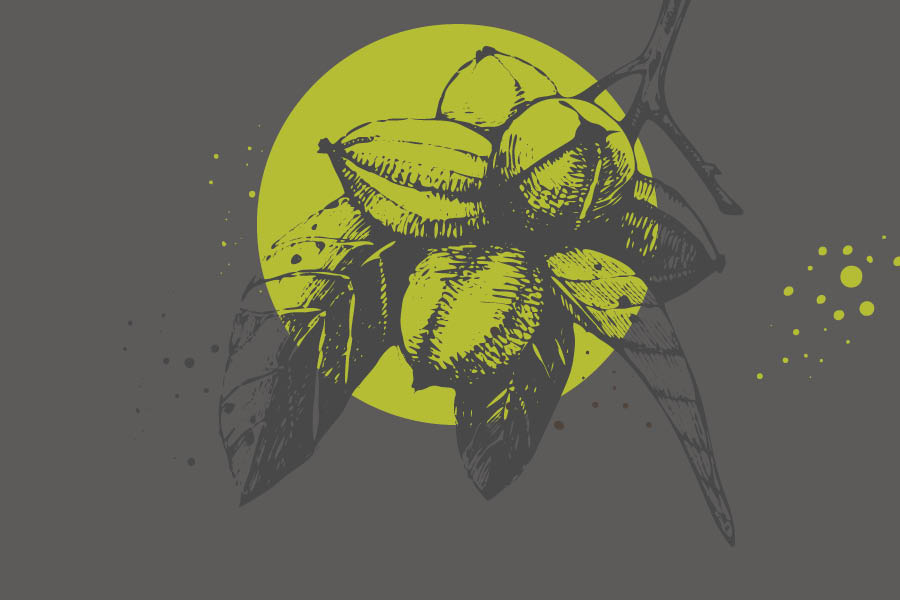Pecans
-

The most fundamental step in pecan production is the selection of varieties or cultivars to be planted in the orchard. Planting the wrong pecan variety can be a costly mistake, resulting in considerable expense. This publication includes descriptions and photos of pecan varieties suitable for planting in Georgia orchards.
Lenny Wells and Patrick J. Conner
|
-

Georgia pecan orchards are often found growing adjacent to fields of annual row crops, timber, and pastures. As a result, the tree canopies of these orchards are susceptible to injury from herbicide drift from the adjacent operations when herbicide applications are made under conditions unsuitable for spraying. Drift may also occur when cotton fields are sprayed with chemical defoliants in the fall. Pecan tree roots often extend into an adjacent row crop fields and can compete with the row crop for available soil, water, and nutrients. Under such conditions, trees may also absorb residual herbicides from the soil in these fields.
Lenny Wells
|
-

Research shows that drip irrigation is highly beneficial to pecan trees in Georgia, even in wet years. This resource explains the benefits that drip irrigation offers.
Kerry A. Harrison
|
-

The pecan leafroll mite is a noninsect pest of pecan trees. Eriophyid mites are a significant group of plant-feeding mites that infest annual and perennial plants. They often go unnoticed because of their very small size and the fact that they usually reside within plant tissues. In Georgia pecans, damage from the pecan leafroll mite damage is typically observed from May and persist until nut harvest, and regular monitoring of mite populations is needed to prevent severe infestations and to ensure effective management.
Shivakumar Veerlapati and Apurba Barman
|
-

Many residents and properties in Georgia have a significant number of pecan trees or small backyard orchards. While pecan trees in commercial orchards are meticulously managed, noncommercial growers encounter challenges in applying the same level of intensive management to their own pecan trees. This guide provides essential tasks specifically designed for the care of these backyard trees.
Lenny Wells, Andrew Sawyer, Apurba Barman, and Robyn Stewart
|
-

The walnut caterpillar is native to North America and is mostly distributed in the eastern part of the United States. The larvae feed on the leaves of the plants such as pecan, walnut, butternut, and other species of hickory. Although it is an occasional insect pest, it feeds voraciously. This publication provides growers with information about its biology, damage symptoms, and management options.
William G. Hudson, Apurba Barman, and Rajendra Acharya
|
-

This publication provides current guidance for insect, disease, and weed control in commercial pecan orchards.
Lenny Wells, Apurba Barman, Timothy Branner Brenneman, Timothy Lane Grey, William G. Hudson, Wayne Mitchem, and Andrew Sawyer
|
-

B 1493
Organic Pecan Production
Organic food production is one of the fastest-growing sectors of the American food marketplace and is driven largely by personal health preferences and environmental ethics. Pecan production generates unique challenges to organic production methods in the humid Southeastern U.S. because it is an environment conducive to heavy pressure from insects, diseases, and weeds. Therefore, the foundation of any organic pecan production program in the Southeastern U.S. will be based on selection for pest-resistant cultivars.
Patrick J. Conner, William G. Hudson, Jason H. Brock, and Lenny Wells
|
-

AP 130-3-10
2025 Fruits and Tree Nuts Outlook
1. Blueberries will continue to lead the Georgia fruits and tree nuts industry in 2025 and subsequent years despite the damage from Hurricane Helene, which is expected to reduce production and yields.
2. The Georgia pecan industry will take several years to recover from the effects of Hurricane Helene, and this natural shortage will keep prices strong.
3. Overall, consumer and grower price indexes will remain strong in 2025.Esendugue Greg Fonsah
|